|
I pray daily for the lost, forgotten, lonely, wounded, and rebellious people in my family, community, and the whole world. Prayer is an action that accomplishes many things. It keeps me focused on who God is and who I am. It gives me peace to lift up these people to our heavenly Father and know that He will do what is best for them. It also supernaturally connects me to these people in a special way that crosses all geographical and physical barriers. We all have these people in our lives, and as fellow humans, we are created to be relational and find ways to build up each other. As committed Christians, we are called to actively share the love of Christ with each other and don’t we have an awesome calling in this! Recently at church, we sang the song “As We Gather at Your Table” by Carl P. Daw and this sentence grabbed my attention: “Turn your worship into witness in the sacrament of love.” I love attending Mass often, reciting various prayers and devotions daily because Mass and prayer are my food for the ministry I am called to engage in as a Christian. It is vital that I listen to a hurting family member or friend and offer hope. I am called to reach across the chasm of their doubt and despair and be the love and tenderness of Jesus to them. I am expected to extend the invitation to believe in God’s salvific power and help them find joy in His immense love for them. When I do this, my worship turns into witness. Once upon a time in my adolescence, two very loving and Godly people (aside from my parents) reached out and invited me into an active role of sharing God’s message with others. That was the beginning of my being willing to be the hands and feet of Jesus to those around me. I began assisting in teaching religious education classes to second graders who probably taught me more about sharing God’s love and truth than I imparted – but it was my entrance into focusing on others and not all of my own deficiencies. God uses us all when we generously surrender ourselves to His work. In a culture riddled with negativity and selfishness, we are challenged to be activists with our faith. The walking wounded are all around us – many in our own families. We are on the frontlines of a war against faith, hope, and love. Malice, greed, confusion, and hatred so easily pervade the environment we live in. But we have the antidote; we have the remedy that can heal broken and torn brethren and bring them unity, joy and peace. We just have to be bold enough to share it. And the beautiful thing is that God equips us with the grace to do just this! Through my prayers, the Holy Spirit adjusts my spiritual armor to battle the evils that seek to destroy our brothers, sisters, children, friends, and co-workers. One person at a time – one opportunity as it presents itself – I extend a hand, a hug, a smile, a listening ear and let them know I accept them where they are and that I am willing to share their load and offer encouragement through truth and love. As Christians, we also have many holy men and women who have gone before us that we can ask to intercede on our behalf to help us be the hope-filled hands and heart of Jesus to others. In a time such as this, when the world seems all topsy turvy, I like to call on Saint Jude. He is the patron saint of hope and impossible causes. When we are walking in God’s truth, we know nothing is impossible because He promised He would be victorious over all evil. This strong apostle of Jesus tells us: “But you, beloved, build yourselves up in your most holy faith; pray in the Holy Spirit. Keep yourselves in the love of God and wait for the mercy of our Lord Jesus Christ that leads to eternal life.” (Jude 1:20-21). I know his intercession will help me! Another beautiful example of one who can aide us in our mission is St. Teresa of Avila. She suffered much for the faith in her life and she offers much wisdom and hope for us to pass on: “God withholds Himself from no one who perseveres.” She most definitely is a saint to call on for intercession. I encourage you, my fellow disciples, to find joy in the work of sharing the hope that comes from being an active Christian and be devoted to this calling above all things. We have the weapons to overcome fear, loneliness, woundedness, and despair and we need to use them one encounter at a time. So, I journey through this day, calling on all the assistance from heaven, to extend God’s invitation to a life in Him, and pray each person responds with a wholehearted Yes! God uses our witness in amazing ways to accomplish His plan on this earth! Join with me and let’s do it! “Thy kingdom come, thy will be done, on earth as it is in heaven.”
1 Comment
My wife and I welcomed our first daughter into the world on February 24th, and we brought her home a few days later on Ash Wednesday. As is the typical newborn parent experience, we’ve endured frustrating, sleepless nights and reveled in joy-filled, playful mornings. Because of stay-at-home, work-from-home orders in Texas, my parental leave has been longer than I anticipated, but I believe this is a blessing. Each moment I’ve had with my daughter has been precious, and as I sit on this (squeaky!) rocking chair holding her in my arms, balancing my laptop on my knee, the recent advice of expert parents runs through my mind and evokes in my heart a fresh understanding of God’s divine fatherhood and my pursuit of sainthood.
In the weeks leading up to our daughter’s birth, one mother of 6 said something to me to the effect of: “The nights are long and the days are short, but the years are the fastest of all.” In these first few weeks of parenthood, I’ve found that my wife is more easily roused during the night. When it’s my turn (opportunity, really) to get up mid-REM cycle, the nights really do feel long. Honestly, they drag. But it’s struck me more than once that getting up in the middle of the night is a very practical way that I can pursue holiness in my vocation. To sacrifice sleep to offer comfort to my child and rest for my wife is not in the same league as answering a burning question for the Summa or calling out a witty line while being burned at the stake, but it is a constant formation in the virtues of humility and charity. I’m led to consider St. Therese’s “little way,” which makes more and more sense each day. Those long nights always do turn into days and, I’m sure, the years will speed by soon. Many people, including our pediatrician, have said, “Always hold your baby in the first few weeks, even when she’s sleeping. You’re not spoiling her, and you won’t get to do that forever.” As a general rule, I’ve always believed babies are cute and, therefore, worthy of spoiling. But no one warned me that when it comes to one’s own child, evolutionary biology and divine motivation combine to make one certain that one’s own baby is the most perfect, most adorable being on all the earth and, therefore, is automatically deserving of every good thing. When I’m holding my daughter in my arms, and I gaze upon her (perfect) little face with its self-inflicted scratches and baby acne, I’m blown away at how much love I have for her. Then, I’m briefly terrified at the thought that something bad could happen to her. And isn’t that how it is for our relationship with God our Father? He gazes upon us, loving us with all our imperfections, slightly terrified and sorrowful at the thought that sin and death and temporal pursuits could lead us to ruin. As I adjust this baby in my arms right now, I’m wondering whether God pulls us closer to His bosom in those moments of near separation, gazing upon us all the while, reminding us how beloved we are with, as Nouwen says in Life of the Beloved, “all the tenderness and force that love can hold.” There are many more pieces of advice that have yielded great spiritual reflections for me these last few weeks. Now, I know that I’m not offering any groundbreaking reflections, but maybe the point of this post is not to offer a new thought, but instead to acknowledge that God has spoken these familiar realities of His love and affection for me in a deeper way through the experience of my vocation. I’m encouraged to remind you in these times of distress: God is a loving Father whose sacrificial love turns against all else, even His own justice (Deus Caritas Est, 10) to gaze upon you with all the force that love can hold. Perhaps this is a notion all mothers and fathers before me—spiritual, adoptive, and biological—have come to understand already, but it’s consoling to know that in a time of uncertainty, God still speaks to and affirms His people through personal encounters. Even through a sleeping baby and a squeaky rocking chair. For more resources on Marriage and Family, please click here. **This post was originally published on 4/28/2020.
As the Church prepares to celebrate World Mission Sunday, we invite you to read this post from Sister Mary Altar of Sacrifice about her missionary vocation. When I was in seventh grade, about the age of 12, I decided to plan my life. I thought that I urgently needed to have an idea and start preparing for my future. I decided that I would be a missionary. I wanted to go to Africa and care for the children, especially those in most need. I always desired to adopt many children, including many with different disabilities. However, the missing piece of my life puzzle was that I didn’t even know what “being a missionary” really meant, and I had never thought about how my vocation would fit into my life either. As time went on, I realized that it was true that I loved to be around and work with children, and I had a great desire in my heart to go out to the whole world to help those in most need. However, I also discovered that God had a very special calling and plan for me, to use me as His instrument. As Mother Teresa said, “I am a little pencil in God’s hands. He does the thinking, He does the writing. He does everything and sometimes it’s hard because it is a broken pencil and He has to sharpen it a little more.” My name is Sister Mary Altar of Sacrifice, and I grew up in Kansas City, Kansas and went to Catholic school my whole life, from kindergarten through college. Thanks be to God, I was given a Catholic upbringing not only at school but also at home. Although I have a truly bad memory, I distinctly remember the different moments of the sacraments in my life, and I believe that it was the grace of the sacraments that opened my heart and led me to discover my religious and missionary vocation. Preparing for First Communion, I remember arguing with my mom about not wanting to wear the fancy white dress. I really disliked dresses because I was a tomboy who grew up with 3 older brothers. However, I understood the importance of the sacrament and was so excited to receive Jesus that I knew that I had to look my very best! It wasn’t until I was preparing for the sacrament of Confirmation that I began to take my Catholic faith seriously and hold it as my own. Our religion teacher told us “this is the moment (Confirmation) that you become an adult in the Church and have to take your faith as your own, so you must decide what you will do with it!” After that, I continually got more involved in the Church throughout high school by joining the youth group, aiding with junior high youth group, lectoring, being a Eucharistic Minister, leading retreats, frequenting the sacraments of confession and communion, etc. I also had the opportunity to do a 2-week mission trip to Peru, which confirmed my early desire to do mission work abroad. The experience of leaving all behind to go serve another was exciting and invigorating. I could concretely see that these people materially were poorer than I, but to see the richness of the treasure of their faith was enlightening. Finally, the time came for me to decide which college I would go to. I decided instead that I would do a gap year of service in another country, but my parents had other plans for me, so my “missionary adventure” was put on hold. Thanks be to God, I decided to go to Benedictine College, where I fell even more in love with Jesus and my Catholic faith, discovered my religious vocation, and finished my degrees in Elementary and Special Education. A month after graduation, I entered the convent in Washington D.C. with the Servants of the Lord and the Virgin of Matara, a missionary order founded in Argentina and currently in over 40 countries. When I visited them for the first time during college, there was a moment of actual grace that I understood this is where God was calling me to fulfill my vocation, and here, He would fulfill all the desires of my heart. I could see the puzzle pieces all fit perfectly together. Now, I am currently a missionary in Papua New Guinea in Oceania and have been here for just over a year. My main apostolate (or missionary work) is in the Primary School of our parish, teaching and working to bring a higher level of integral education to our students. Since I have entered religious life, every day has been a “missionary adventure.” However, being a missionary doesn’t just mean going to another country. Through our Baptism, we have been called to follow Jesus and sent to be missionaries to the world. The first step is to evangelize ourselves. We must look at our life and ask, “am I truly living the Gospel in my daily life and following Jesus in everything I think, say, and do?” Then, we must complete Christ’s mandate to love our neighbors and bring the Gospel to those closest to us. Sometimes, this is even more challenging than leaving our own family and country to serve someone. We must learn to be missionaries in our daily lives and pray and discern to see where and how God is calling us to fulfill that mission. Some have a special calling to give their whole lives as priests or religious to do this work! In addition, God calls some—priests, religious, and laity—to be missionaries abroad. However, we, as Catholics, are all called to be missionaries. As St. Catherine of Siena said, “If you are who you were meant to be, you will set the world on fire!” So, I invite you to pray for the missions and all missionaries in the world in a special way during this month of missions, but also I invite you to take some time to listen and pray about how God is calling you to be a missionary in your life. For more resources on Vocational Discernment, please click here. **This post was originally published on 11/3/2020. AuthorSister Mary Altar of Sacrifice serves as a religious missionary in the Diocese of Vanimo, Papua New Guinea Several weeks ago, I stood in line for what I thought would be a “normal” Confession. The line was long, which was good because I needed time to get my thoughts in order. I had not been to Confession for some time and my prayer routine had been... anything but routine. The busy-ness of life had gotten in the way. Moving to a new city, buying a new house, starting a new job, raising a young daughter, and anxiously awaiting another baby on the way were just some of the things that had been preoccupying my mind and time. I felt guilty for “ignoring” God, like many other parents who attempt to balance work and family life while trying to manage their spiritual lives as well. As I moved closer to the Confessional, I became very aware of a familiar guilt creeping into my soul. Memories of un-Christian actions and inactions that have made lasting impacts on my life hit me in mental waves. These are things that I’ve taken to the Confessional before, but I still felt their burden of shame in my mind and heart. I tried to rouse my theological senses to rationalize my worry away, “There is no unforgivable sin.” I tried to encourage myself. Did I really think that my sinfulness was greater than the Divine Goodness? I became uncharacteristically racked with doubt as I neared the Confessional. Only a few people stood between me and the Confessional door, and I took this chance to look at the tabernacle. “Lord, can You really do this? Can You forgive me, even when I can’t forget what I've done? Even when I can’t forgive myself?” I was surprised at the depth of my anguish. I decided to bring this up to the priest in my Confession, and I eagerly anticipated hearing some good counsel. After I made my Confession, the priest took a deep breath and remained silent for a time. I was convinced for a moment that I had overburdened him, that I had shocked him with my doubts. After a few moments he said, “For your penance, spend a few minutes in front of the Blessed Sacrament. Let Jesus talk to you.” I’ll admit, initially I was a bit downcast. I was hoping for some advice! Something that I could do to help myself. I have prayed in front of the Blessed Sacrament many times, and I’ve had more mundane experiences than life-changing ones. Slightly disappointed, I made my Act of Contrition and walked off to the Blessed Sacrament chapel. I knelt and fixed my eyes on the tabernacle. I repeated the question I had asked earlier, “Lord, can you really forgive me?” And then very clearly, very abruptly, and in a voice not my own, I heard: “Do you think I’m a liar?” God spoke. His question was presented in a challenging way, but not an aggressive way. It was presented in a way that gave me space to respond with an answer, a true answer. In God’s loving mercy, He knew how to speak to me so that I would understand that He had forgiven me. He responded to my question with His own question, as a good Rabbi would. The Lord shattered my racing, scrupulous thoughts, and he dared me to call Him a liar, just to get my attention. All in the presence of his sacred Body. I had to stifle laughter as I knelt in the chapel with the other penitents. I was amazed! His simple question had infused my soul with joy and comfort because I know and believe that God is not a liar. How could I kneel before the Eucharist, gaze upon His sacramental Body, and call him a liar? God is Truth, there is nothing false in Him. And He does what He says He will do. I gazed at the Eucharistic Body of our Lord and was full of gratitude and awe. The God of the Universe had made Himself present through bread so that I might know His Love. A week ago, the Church commemorated Blessed Carlo Acutis, a young man who was filled with Eucharistic awe and who knew that it is the act of gazing upon the Eucharistic Body of Jesus—not looking at ourselves—that changes hearts. I think one of his wiser quotes sums up this thought, “Sadness is looking at ourselves. Happiness is looking toward God.” God used the Eucharist, the sacrament of Love, to remind me that I was living incurvatus in se--turned in on myself—which was preventing me from seeing that I was freed from my sins, that I could live anew. Confession and Eucharist together brought me great spiritual consolation that day. As the Church in the United States dedicates more time and energy to catechesis on the Eucharist, and as we celebrated Carlo Acutis’s life last week, I hope that we can find time to gaze upon God in the Eucharist and to come away awestruck by the great, sacrificial Love residing in the Blessed Sacrament.
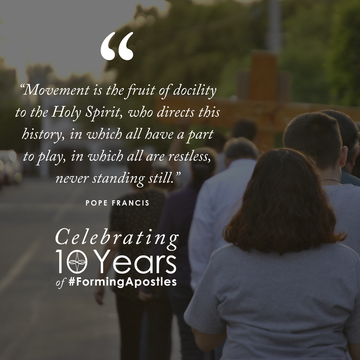 Ten years is a brief amount of time, but it is enough to assess the fruitfulness of a ministry. The Catholic Apostolate Center came out of a desire of the leadership of the Immaculate Conception Province of the Society of the Catholic Apostolate to serve the Church in a way that speaks to its needs in the 21st century through the spiritual vision of St. Vincent Pallotti. The task that Pallotti embarked on in 1835 continues today. The Center is an expression of it. By living collaboration from the beginning and listening and responding to the promptings of the Holy Spirit, the growth, reach, and fruitfulness of the Catholic Apostolate Center in ten years is exceptional. None of it could be possible without the collaboration of the Pallottines, Center staff, collaborators, advisors, various Catholic entities, and with you. In this, we are in thanksgiving. Similar to the Union of Catholic Apostolate (UAC), the Center is as a former President of the UAC says, “of the Church and for the Church.” We do not stand outside making some type of parallel Church or dwelling in ideologies. Instead, the Catholic Apostolate Center for a decade has faithfully assisted the Church in the mission of forming apostles for both the Church and world. Ten years is only the beginning. As Pope Francis stated a few weeks ago to the faithful of the Diocese of Rome, “This is essential: if Christians do not feel a deep inner restlessness, then something is missing. That inner restlessness is born of faith; it impels us to consider what it is best to do, what needs to be preserved or changed. History teaches us that it is not good for the Church to stand still (cf. Evangelii Gaudium, 23). Movement is the fruit of docility to the Holy Spirit, who directs this history, in which all have a part to play, in which all are restless, never standing still.” St. Vincent Pallotti put it this way, sempre più, always more. May the Charity of Christ urge us on!
On October 22nd, we celebrate the feast of St. John Paul II, a saint of our times! He is remembered for many things, including his passion for the arts, outdoors, youth, and families. St. John Paul II also had a deep devotion to Mary, and in what I know of St. John Paul II’s life and loves, we can bring no greater joy in celebrating his sainthood than by honoring our blessed Mother.
St. John Paul II’s favorite prayer was the Rosary, and I too, have developed a fondness for praying it. I stumbled upon a recording a couple of years ago in my desire to pray it intentionally. As I would listen and pray along in my car every morning before work, I discovered a love for each mystery and the fruit they bear, as like Mary, I “pondered them in [my] heart” (Luke 2:19, 51). The mysteries of the Rosary invite us to contemplate the life of Christ through the memories of Mary. St. John Paul II says remembering these mysteries “were to be the ‘rosary’ which she recited uninterruptedly throughout her earthly life” (Rosarium Virginis Mariae, §11). In this remembering, the account of the Gospel from the eyes of Mary are timeless, “not only belong[ing] to ‘yesterday’; they are also a part of the ‘today’ of salvation” (John Paul II, Rosarium Virginis Mariae, §13). In this, St. John Paul II reminds us that the Rosary is an invitation to participate in Christ’s divine life, and it is relevant across time to the faithful of all ages. Recently my routine for praying the Rosary has changed as I am now on maternity leave and spend the day taking care of my newborn daughter. Instead of rushing to get my two-year-old son into the car and dropped off at daycare before work and enjoying my prayer time alone in the car, we have the opportunity to hop in the stroller and walk to daycare, spending time together saying hi to neighbors and marveling at the changing of seasons before he starts his school day. Despite the enjoyment both my son and I get from these walks, in the transition of summer at home with mommy to school, and the transition from being an only child to living the realities of being a big brother at only two years old, for quite a few weeks my son was not happy about leaving home for the day. Although my son loves school, he was hating drop off, and his anxiety (and let’s be honest, mine, too) crept in the closer we got to school each day. One morning as I was trying to get him excited for the day, I asked him if he wanted to pray the Rosary with me, telling him it always brings me calm and comfort, and he said yes. I told him I would let my recording play, and I would tell him the stories of each mystery. Thus began a new routine for us each morning. As the Joyful Mysteries play, I tell him about how much Mary loved God that she said yes to being Jesus’ Mommy, and how we pray that we can love God like her and say yes to Him when he needs us to. When the Luminous Mysteries play, I tell him about Jesus’ first miracle, turning water into wine at the Wedding at Cana, and that through Mary, she will lead us to Jesus and help us see the miracles he’s performing in our own lives. In praying the Sorrowful Mysteries, I am very closely brought to tears as I think about explaining death to a toddler, and moved by Jesus’ sacrifice for us, telling my son that no sin stops Christ’s love for us. We pray to be good people and follow the will of God. And when we pray the Glorious Mysteries, I get to teach my son about the glories of the Holy Spirit and Heaven, praying for our ultimate happiness with Jesus, Mary, and all the saints. In praying these, I am in awe of how parenting is transforming my heart, teaching me to be like a little child, loving Jesus without abandon like my son does. By the time we’ve prayed our Rosary for the day, we’ve arrived at daycare. Filled with his spunky confidence and newfound graces, my son hops out of his stroller and says “let me give you a kiss for the road,” and sends me off on my way. Each day, he runs off to the playground to play with his friends, and I am amazed by the graces we’ve both received by praying the Rosary together. In his great love for both the Rosary and the family, St. John Paul II called families to pray this prayer together, acknowledging how its graces unite the family: Individual family members, in turning their eyes towards Jesus, also regain the ability to look one another in the eye, to communicate, to show solidarity, to forgive one another and to see their covenant of love renewed in the Spirit of God. Many of the problems facing contemporary families, especially in economically developed societies, result from their increasing difficulty in communicating. Families seldom manage to come together, and the rare occasions when they do are often taken up with watching television. To return to the recitation of the family Rosary means filling daily life with very different images, images of the mystery of salvation: the image of the Redeemer, the image of his most Blessed Mother. The family that recites the Rosary together reproduces something of the atmosphere of the household of Nazareth: its members place Jesus at the centre, they share his joys and sorrows, they place their needs and their plans in his hands, they draw from him the hope and the strength to go on. (Rosarium Virginis Mariae, §41) From daycare drop-offs to contemplating our family’s deepest sorrows and joys, we too as a family have found this hope and strength of the Rosary to be true and timeless. As we prepare to celebrate the Feast of St. John Paul II, I invite you to honor him and our Blessed Mother by taking the time to pray the Rosary, finding twenty minutes of your time to devote to contemplating the face of Jesus. St. John Paul said, “a prayer so easy and yet so rich truly deserves to be rediscovered by the Christian community… I look to all of you, brothers and sisters of every state of life, to you, Christian families, to you, the sick and elderly, and to you, young people: confidently take up the Rosary once again. Rediscover the Rosary in the light of Scripture, in harmony with the Liturgy, and in the context of your daily lives” (Rosarium Virginis Mariae, §43). Know of my unending prayers for you as you begin this rediscovery of the Rosary for yourself, as with Mary, you too ponder these mysteries in your heart and recognize their fruits in your life. St. John Paul II, pray for us! Our Lady of the Rosary, pray for us! *This post was originally published on October 22, 2019. Birthdays and anniversaries are often occasions of great joy! Many of us count down to and look forward to these meaningful celebrations of life. We invite friends and family members to share in our joy. What if we celebrated our Baptism, the day of our “rebirth,” in the same way? Pope Francis has repeatedly issued a challenge to do just that: “…[I]f we celebrate birthdays, why not celebrate — or at least remember — the day of rebirth?” (General Audience, April 11, 2018). More than a simple invitation to learn the date of our Baptism, Pope Francis urges us to allow this observance to “reawaken the memory of Baptism.” He tells us that, “To know the date of our Baptism is to know a blessed day. The danger of not knowing is that we can lose awareness of what the Lord has done in us, the memory of the gift we have received. Thus, we end up considering it only as an event that took place in the past – and not by our own will but by that of our parents – and that it has no impact on the present… As I know my birthday, I should know my Baptism day, because it is a feast day.” (General Audience, January 8, 2014) My mother has always made a point of reminding my siblings and me of our sacramental anniversaries. Whether it’s making a special dessert or just telling us stories of the festivities and recounting small details from the ceremony, she makes it feel like a feast day. Now, with my own children, I am trying to imitate her example and make a more concerted effort to mark these events in our family’s life and draw out their significance. Today marks the fourth anniversary of my son’s Baptism. As we celebrate the occasion, I am hoping to put into practice at least a few of the following ideas:
I hope that my son looks forward to his baptismal anniversary every year with as much excitement as he does his birthday. Even more than that, I pray that he may grow to recognize his Baptism as a formative part of his identity. I encourage you to learn the story of your Baptism if you don’t already know it. Find out the date on which you were baptized, where you were baptized, and who your godparents are. Mark this day on your calendar and decide how you can commemorate this day each year. It may be as simple as going to Mass, spending extra time in prayer, or gathering with friends for a special meal! No matter what you do, resolve to make it a day of gratitude and celebration for the great gift of God’s grace in your life. Whether we are marking the occasion of our own Baptism or that of a friend or family member, “Let us, then, ask the Lord from our hearts that we may be able to experience ever more, in everyday life, this grace that we have received at Baptism. That in encountering us, our brothers and sisters may encounter true children of God, true brothers and sisters of Jesus Christ, true members of the Church” (Pope Francis, General Audience, January 8, 2014). This October, as summer turns to fall and the days start getting shorter, we sometimes find ourselves with opportunities to reflect on some of life’s bigger questions. I often find myself this season asking deep questions on a nice walk outside while admiring the beauty of nature. A lot of times, these big life questions usually involve prayer, discernment, and looking to role models. When I sat down to look at the saints whom we celebrate this October, I realized that many of them had to face similarly tough life questions. The popes, young people in the Church, and martyrs we celebrate this October can help us grow in our own faith journey. Pope Saints Next week, we will celebrate two saints who were popes, albeit at vastly different times. On October 14th, we will celebrate the feast of St. Callistus I (also know as Callixtus I). For many, he is probably one of the lesser-known pope saints. He was the 16th pope and had to deal with great division in the Church. He was able to navigate the Church through many doctrinal controversies through these turbulent times and was martyred around the year 222. Similarly, St. John XXIII navigated through many challenging questions in the Church when he opened the Second Vatican Council in 1962. It was through much prayer and discernment that both popes were able to guide the Church out of murky waters. Later this month, we will celebrate Pope St. John Paul II. One of my favorite John Paul II quotes epitomizes the courage he calls all of us to in living out our faith: “Do not be afraid. Do not be satisfied with mediocrity. Put out into the deep and let down your nets for a catch.” Saints who had an impact in their youth Already this month, we have celebrated two saints who had a major impact on the Church while in their youth: St. Thérèse of Lisieux and St. Francis of Assisi. St. Thérèse, who died at 24, was known for her life of fervent prayer. She was a cloistered Carmelite nun whose prayer was not focused on herself, but on the whole world. She is known as one of the patron saints of missionaries even though she lived as a cloistered nun. St. Francis of Assisi also had a huge impact on the Church while still young. St. Francis was in his 20s when he heard God’s call in the chapel at San Damiano, but it took him time and further prayer to realize God’s true calling for him. St. Francis’ perseverance in the faith and continual discernment of God’s call, even in times of confusion, inspire me. Bl. Carlo Acutis, beatified just last year, also positively impacted the Church in his youth. Bl. Carlo was an amateur computer programmer who died in 2006 at the age of 15. He used his passion for computers to create a website documenting Eucharistic miracles across the world. Martyrs from all ages Throughout the rest of the month, we will celebrate the feast days of martyrs from all time periods in the Church. This includes the memorial of two Apostles: Sts. Simon and Jude. While not much is known about the lives of Sts. Simon and Jude, it is known that they both were killed for their faith. Also martyred in the time of the early Church was St. Ignatius of Antioch. He is known for his incredible writings on Christology. St. Denis was also a martyr in the time of the early Church. Many portrayals of St. Denis will show him holding his head in his arms because after his was martyred, legend has it that he held his head and shared Christ with those who killed him. On October 19th we will celebrate Sts. John de Brebuf and Isaac Jogues, the patron saints of North America. They were killed in the 17th century while ministering to the Iroquois. Even though they had previously been captured and knew that they could be killed, they placed all of their trust in God and continued their missionary work. Throughout the rest of this October, let us pray for the intercession of these saints in helping us be courageous in prayer and discerning God’s continuing will for us. To learn more about the saints, visit our Catholic Feast Days Website by clicking here. To view a calendar of the feast days in October, and each month, click here.
|
Details
Archives
July 2024
Categories
All
|
About |
Media |
© COPYRIGHT 2024 | ALL RIGHTS RESERVED



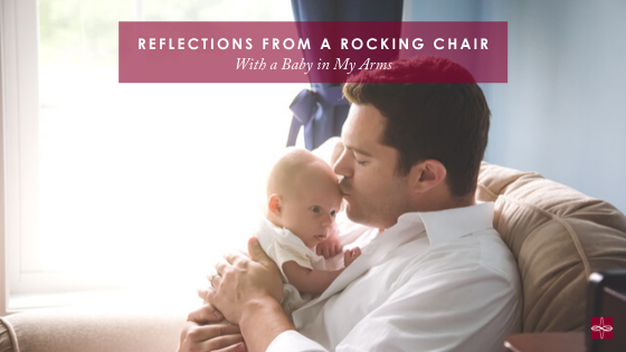
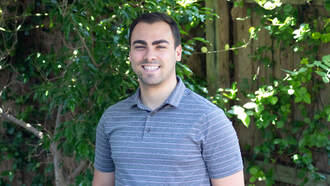
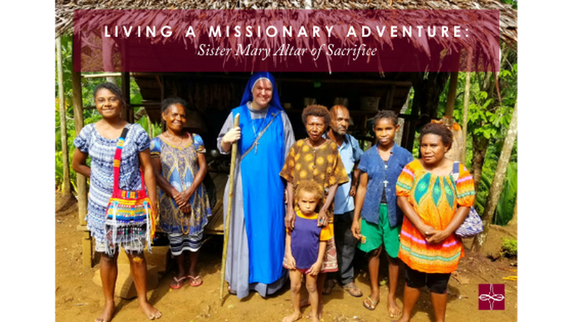
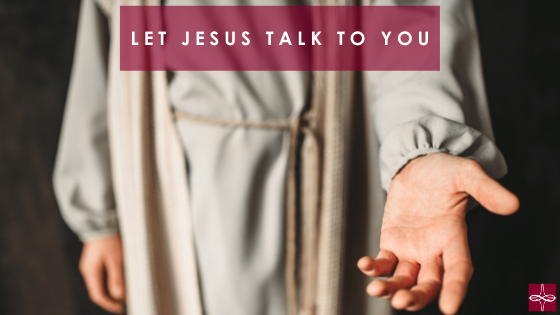
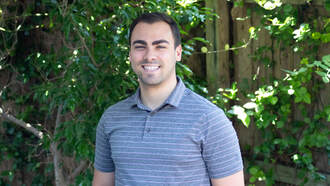
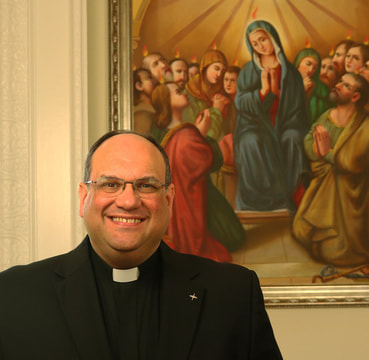
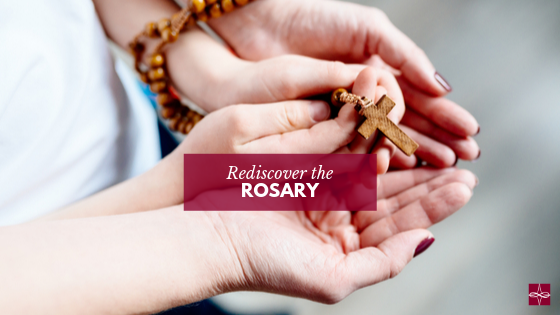

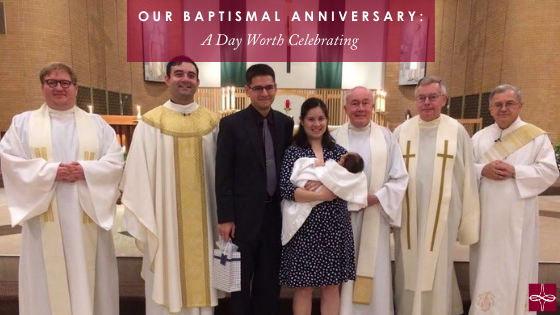

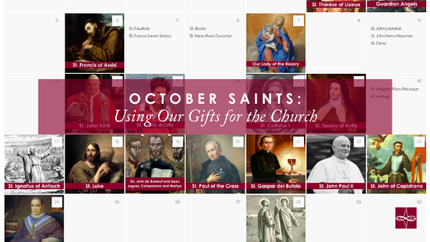
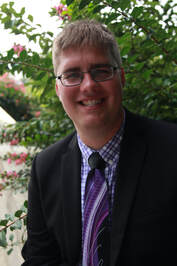
 RSS Feed
RSS Feed